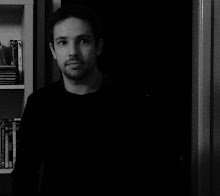
Those earliest museums, the ur-collections back in the sixteenth and seventeenth centuries, were sometimes called Wunderkammern, wonder-cabinets, and it occurs to me that the Museum of Jurassic Technology truly is their worthy heir in as much as wonder, broadly conceived, is its unifying theme. ("Part of the assigned task," David once told me, "is to reintegrate people to wonder.") But it's a special kind of wonder, and it's metastable. The visitor to the Museum of Jurassic Technology continually finds himself shimmering between wondering at (the marvels of nature) and wondering whether (any of this could possibly be true). And it's that very shimmer, the capacity for such delicious confusion, Wilson sometimes seems to suggest, that may constitute the most blessedly wonderful thing about being human.
***
David Wilson has thus pitched his museum at the very intersection of the premodern and the postmodern - or rather, perhaps what he has done is to tap into the premodern wellsprings of the postmodern temper.
- Lawrence Weschler, Mr. Wilson's Cabinet of Wonder

If the postmodern indeed turns out to be premodern, as Lawrence Weschler provocatively implies in Mr. Wilson's Cabinet of Wonders, we now stand at the threshold of a paradigm shift whose scope is equivalent to that of the seventeenth century. But this shift finds us standing at the threshold with Leonardo, not Francis Bacon, since the upheavals in philosophy and aesthetics currently under way in the West - those overthrowing modernism and postmodernism alike - draw heavily from the premodern image of a living cosmos. Over a span of three hundred years, we have maintained our connection to officially vanquished notions, principally via the arts, in unconscious ways. But now this worldview is being explicitly revived in the new technologies of cybernetics, with the result that the widespread use of Platonic metaphors such as "virtual reality" to describe computer-generated images as if they "lived" in a tangible place has carried us deeply (backward or forward, according to one's bias) into the Western mystical tradition.
- Victoria Nelson, The Secret Life of Puppets



























.jpg)

















